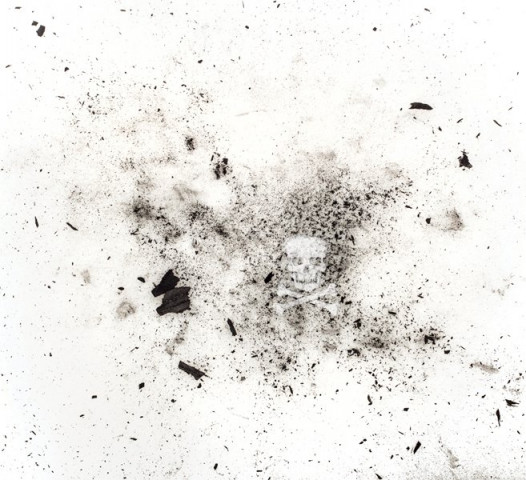Dangerous line of work: Shangla continues to lose residents to deadly coal mines
Most mine workers all over the country belong to the impoverished district.

Most mine workers all over the country belong to the impoverished district.
Hundreds of people from the district of Shangla in Khyber-Pakhtunkhwa (K-P) have become victims of coal mine accidents all over the country, most of which result from official apathy and lack of safety measures by mine owners.
Residents claim ever since Shangla was carved out of Swat as a separate district, development in the region has gone down even further. Owing to the rough terrain, lack of basic civic facilities and the possession of majority of fertile land with the elite, residents say most of them are left with no choice but to look for jobs as mine workers all over the country.

According to rough estimates, around 60 to 70,000 residents of Torband, Kanra, Bailay Baba, Shahpur, Ranyal, Dhairan, Aluch and Karha are working in coal mines located in Balochistan and K-P.
Tangshet resident Zakir Khan’s father has been working as a coal miner in Balochistan for 32 years. Zakir told The Express Tribune that owing to the severe dearth of employment and abject poverty, Shangla became the best source for mine contractors to hire labourers.
Zakir said contractors have little or no safety arrangements for the miners, who are sometimes forced to work without helmets, torches and oxygen cylinders to use inside the mines. The people of the lush green district have no choice but to risk their lives day in, day out to support their families back home, said a worried Zakir.
He lamented the “inhumane” working conditions and said when labourers are killed in accidents, the mine contractors do not even facilitate the transportation of bodies to their native villages, let alone compensate the bereaved families.
Between a rock and nowhere to go
A former mine worker, 50-year-old Sabir Rehman shared that in most of the accidents, miners get trapped inside the debris and families have to wait for months to receive their bodies. That most basic closure comes after creating a ruckus with contractors who do not want to spend money extracting the deceased miners’ remains.
Rehman said other than those who are killed; there are hundreds of workers who are left physically disabled from mine accidents. One of the most common causes of accidents is poisonous gas pockets that blow up inside the mines.
“As the demand for coal and fuel increases, the government should ensure it only gives mining licences to companies which adhere to international safety standards and have modern mining equipment, along with safety and health benefits for workers.”
Even though a certain number of such rules and safety measures exist on paper, their official implementation is what is lacking.
Rehman explained non-governmental organisations fighting for human rights rarely take up their cause. He criticised the labour associations, saying they stage protests for their rights only to further their own personal agendas.
Not only the illiterate section of society but even the educated people of Shangla were compelled to work in these desolate mines due to a lack of opportunities back home, shared the former miner. He added workers spend months at a time without so much as a phone call to their families as most of the mines are located in far-flung areas with no communication lines.
Amanullah, a coal mine contractor, told The Express Tribune there were around 30 to 35 coal mining companies in the country, adding all necessary safety tools were being provided to their labourers.
There are several welfare boards that function as a platform to provide compensation and help to heirs of mine accident victims, stated the contractor. The Muttahida Labour Federation was another organisation struggling for the rights of mine workers, claimed Amanullah.
Dr Ibadullah Khan, the National Assembly member from Shangla’s only seat and brother of Adviser to PM Amir Muqam shared, “90% of coal miners in the country belong to Shangla and it is a matter of concern that most of them are not registered.”
He said most companies do not register workers to avoid paying additional taxes; if they do so the companies will be liable to provide education and health facilities to the workers’ families and ensure safety measures at the workplace. Most mining companies themselves are not registered, claimed Ibadullah.
Published in The Express Tribune, February 17th, 2014.













COMMENTS
Comments are moderated and generally will be posted if they are on-topic and not abusive.
For more information, please see our Comments FAQ